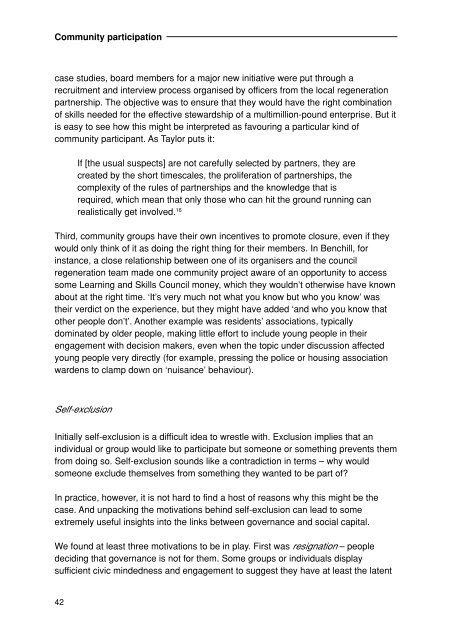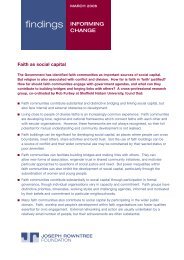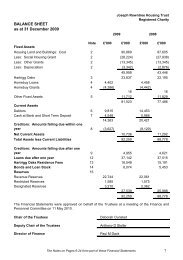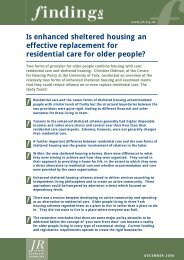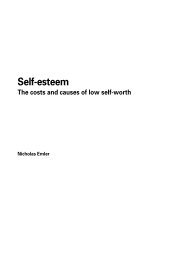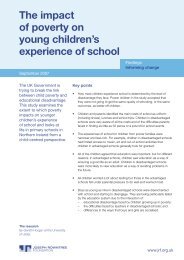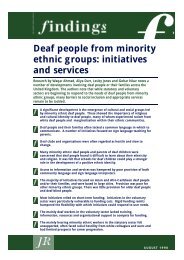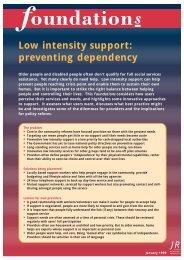Community participation - Joseph Rowntree Foundation
Community participation - Joseph Rowntree Foundation
Community participation - Joseph Rowntree Foundation
You also want an ePaper? Increase the reach of your titles
YUMPU automatically turns print PDFs into web optimized ePapers that Google loves.
<strong>Community</strong> <strong>participation</strong><br />
case studies, board members for a major new initiative were put through a<br />
recruitment and interview process organised by officers from the local regeneration<br />
partnership. The objective was to ensure that they would have the right combination<br />
of skills needed for the effective stewardship of a multimillion-pound enterprise. But it<br />
is easy to see how this might be interpreted as favouring a particular kind of<br />
community participant. As Taylor puts it:<br />
If [the usual suspects] are not carefully selected by partners, they are<br />
created by the short timescales, the proliferation of partnerships, the<br />
complexity of the rules of partnerships and the knowledge that is<br />
required, which mean that only those who can hit the ground running can<br />
realistically get involved. 16<br />
Third, community groups have their own incentives to promote closure, even if they<br />
would only think of it as doing the right thing for their members. In Benchill, for<br />
instance, a close relationship between one of its organisers and the council<br />
regeneration team made one community project aware of an opportunity to access<br />
some Learning and Skills Council money, which they wouldn’t otherwise have known<br />
about at the right time. ‘It’s very much not what you know but who you know’ was<br />
their verdict on the experience, but they might have added ‘and who you know that<br />
other people don’t’. Another example was residents’ associations, typically<br />
dominated by older people, making little effort to include young people in their<br />
engagement with decision makers, even when the topic under discussion affected<br />
young people very directly (for example, pressing the police or housing association<br />
wardens to clamp down on ‘nuisance’ behaviour).<br />
Self-exclusion<br />
Initially self-exclusion is a difficult idea to wrestle with. Exclusion implies that an<br />
individual or group would like to participate but someone or something prevents them<br />
from doing so. Self-exclusion sounds like a contradiction in terms – why would<br />
someone exclude themselves from something they wanted to be part of?<br />
In practice, however, it is not hard to find a host of reasons why this might be the<br />
case. And unpacking the motivations behind self-exclusion can lead to some<br />
extremely useful insights into the links between governance and social capital.<br />
We found at least three motivations to be in play. First was resignation – people<br />
deciding that governance is not for them. Some groups or individuals display<br />
sufficient civic mindedness and engagement to suggest they have at least the latent<br />
42


